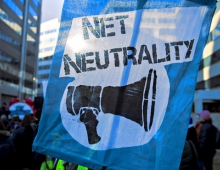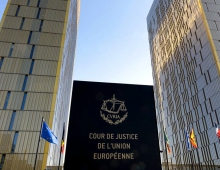
European Commission To Ask The European Court Whether ACTA Would Be Compatible with EU Law
The European Commission, facing opposition in city streets, on the Internet and in the halls of parliament, decided to ask the European Court of Justice to rule on whether ACTA would be compatible with EU law, and in particular with fundamental rights and freedoms enshrined in the EU Treaty.
Trade Commissioner Karel de Gucht today admitted that there are still many question marks about ACTA and what the implementation of the agreement, as it stands, would mean for citizens and for the freedom of the internet.
MEP David Martin (S&D, UK), who is steering the Anti-Counterfeiting Trade Agreement (ACTA) through the European Parliament, welcomed today's decision.
"We will wait for the ECJ ruling before we draw conclusions, but an open political debate in the European Parliament is also necessary on the measures foreseen by ACTA.
"We must guarantee a good balance between intellectual property rights, which are fundamental for the European economy and job creation, and individual freedoms."
Meanwhile, Parliament will continue its scrutiny of the agreement. The first discussion in Parliament's International Trade Committee, the lead committee on ACTA, will take place on 29 February. On 1 March there will be a hearing in which MEPs, academics, civil society bodies and EU officials will discuss ACTA's possible merits and disadvantages.
The decision appeared to reflect recognition by European Union officials of the political obstacles. Protests against the agreement were staged earlier this month in several European capitals by critics who say the agreement would stifle free speech and access to information.
The hacking group known as Anonymous claimed responsibility last week for a new series of hacks against the U.S. Federal Trade Commission and consumer rights websites. The sites were replaced with a violent German-language video satirizing ACTA.
ACTA drafters say it is needed to harmonize international standards to protect the rights of those who produce music, movies, pharmaceuticals, fashion goods, and a range of other products that often fall victim to piracy and intellectual property theft.
The EU and 22 EU Member States signed ACTA on 26 January 2012 in Tokyo. Although the European Council - the European Union heads of government - approved ACTA in December, for the EU to be a party to the treaty, all 27 member countries would have to formally ratify it.
"ACTA will not censor websites or shut them down; ACTA will not hinder freedom of the internet or freedom of speech," De Gucht said.
However, opponents fear ACTA would lead to censorship and a loss of privacy on the Internet. And the plan to gain court approval of the agreement has left at least some of them unimpressed.
MEP David Martin (S&D, UK), who is steering the Anti-Counterfeiting Trade Agreement (ACTA) through the European Parliament, welcomed today's decision.
"We will wait for the ECJ ruling before we draw conclusions, but an open political debate in the European Parliament is also necessary on the measures foreseen by ACTA.
"We must guarantee a good balance between intellectual property rights, which are fundamental for the European economy and job creation, and individual freedoms."
Meanwhile, Parliament will continue its scrutiny of the agreement. The first discussion in Parliament's International Trade Committee, the lead committee on ACTA, will take place on 29 February. On 1 March there will be a hearing in which MEPs, academics, civil society bodies and EU officials will discuss ACTA's possible merits and disadvantages.
The decision appeared to reflect recognition by European Union officials of the political obstacles. Protests against the agreement were staged earlier this month in several European capitals by critics who say the agreement would stifle free speech and access to information.
The hacking group known as Anonymous claimed responsibility last week for a new series of hacks against the U.S. Federal Trade Commission and consumer rights websites. The sites were replaced with a violent German-language video satirizing ACTA.
ACTA drafters say it is needed to harmonize international standards to protect the rights of those who produce music, movies, pharmaceuticals, fashion goods, and a range of other products that often fall victim to piracy and intellectual property theft.
The EU and 22 EU Member States signed ACTA on 26 January 2012 in Tokyo. Although the European Council - the European Union heads of government - approved ACTA in December, for the EU to be a party to the treaty, all 27 member countries would have to formally ratify it.
"ACTA will not censor websites or shut them down; ACTA will not hinder freedom of the internet or freedom of speech," De Gucht said.
However, opponents fear ACTA would lead to censorship and a loss of privacy on the Internet. And the plan to gain court approval of the agreement has left at least some of them unimpressed.





















